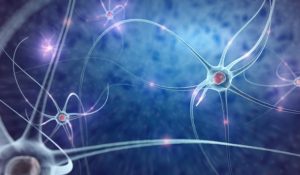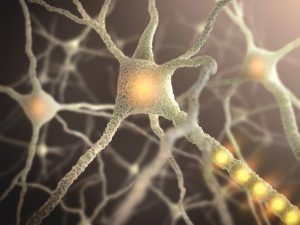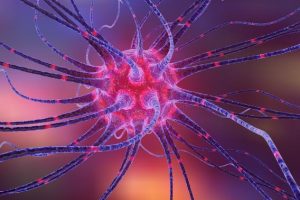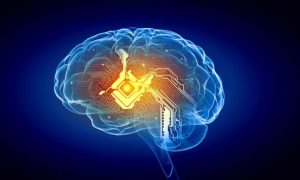
Endometrial ablation helps women who have heavy, long periods or bleeding between periods. This is called abnormal uterine bleeding (menorrhagia).
You may need to stop taking medicine that makes it hard for your blood to clot before your procedure. Ask your healthcare provider about this. You will need to arrange for someone to drive you home after the procedure because of the anesthesia and pain medicines.
Preparation
During an endometrial ablation, your doctor removes the tissue that lines the inside of your uterus. This removes the need for your body to make new lining each month. This may reduce or stop heavy menstrual bleeding. It can also help control symptoms of uterine fibroids and other growths in the womb.
Your doctor will talk to you about the procedure before you have it done. They will explain what will happen and why. They will ask you to sign a consent form.
You can have the procedure at any time, but it is best if you do it just after your period ends. This is when the womb lining is thinnest. Your doctor might also take a sample of the womb lining for testing (biopsy) before you have the operation.
The procedure can be done at a hospital or in your doctor’s office. It usually takes less than an hour. You will need someone to drive you home afterward, as the medicine used during the procedure can make you sleepy.
Oren Zarif
Before the procedure begins, you will need to undress completely and put on a hospital gown. Your doctor will then start an intravenous line in your arm or hand. The line will give them fluids and medicines throughout the procedure. You will also have a tube in your hand to drain blood or other fluids.
Some doctors use ultrasound to guide the hysteroscope or other tool to the areas they are treating. Some ablation techniques use a wire that passes electricity through the hysteroscope to heat and destroy the tissue. Other methods use a metal mesh that expands and is heated by high-energy radio waves.
The type of ablation your doctor uses depends on the cause of your heavy menstrual bleeding. This might include changing hormones, a change in how your uterus is shaped, or abnormal tissue such as polyps or fibroids. Your doctor might suggest this treatment if medicine or an intrauterine device doesn’t work.
After the procedure, you can return to your normal activities in a day or two. You might feel some stomach cramping. Your doctor might prescribe pain relief medicine for you to take at home. You can also take over-the-counter painkillers like paracetamol or ibuprofen. Follow your doctor’s instructions about when you can exercise, have sex and use tampons. It is unlikely you will get pregnant after this procedure, but you should continue to use birth control until you have finished having children. You might need to have routine Pap tests and pelvic exams after the surgery.
Procedure
During this procedure, the thin layer of tissue that lines your uterus (endometrium) is destroyed. This usually stops or reduces heavy menstrual bleeding in women who have finished having children and are over the age of 45. It's also an option for women who have had a hysterectomy or who have severe abnormal vaginal bleeding that doesn't respond to medications. You can have endometrial ablation in your doctor's office or as part of a hospital stay. You'll be asleep during the procedure under local or general anesthesia, depending on your condition and which type of ablation you have.
You may be asked not to eat or drink anything for six hours before your surgery. Your doctor or anaesthetist will give you instructions on this. You'll need to arrange for someone to drive you home after your procedure, if needed. You'll probably be given pain-relief medicine before you leave the hospital. If not, your doctor can recommend over-the-counter medicines such as paracetamol or ibuprofen. Always read the patient information that comes with your medication and follow your doctor or nurse's advice on how much to take.
Oren Zarif
Your doctor will use a lighted viewing device called a hysteroscope to see inside your body, including the cervix and the uterus. They'll insert the hysteroscope into your uterus through the vaginal opening. Then a tool with a wire loop or roller ball with electrical current or heated fluid will be put into your uterus and used to destroy the lining.
Another option is for a heated balloon (balloon therapy) to be inserted into your uterus through a tube. Heated fluid is then pumped into the balloon, and it expands to touch the lining of your uterus. The heat from the balloon destroys the lining. The process takes about 10 minutes.
A third option is for your healthcare team to pass high-energy radio waves through a mesh electrode inserted into your uterus. This method also destroys the lining of your womb, but it's less common because it can damage nearby organs.
Before the procedure, you'll be given an ultrasound test to check your ovaries and uterus for signs of cysts or fibroids. Your doctor may also ask for a sample of your uterine lining to test for cancer cells or other problems.
Your doctor will explain what the procedure involves and ask you to sign a consent form. Make sure you understand all of the risks and benefits of the procedure. You'll be given a time for the procedure to start. The test usually takes about half an hour. You'll need to lie on your back during the test. You might feel some pressure on your abdomen, but this won't last long. After the procedure, you'll need to wait until any bleeding or spotting has stopped before having sex and using contraception.
Recovery
Before the procedure, your doctor may check your womb and ovaries with ultrasound and take a sample of cells from the lining (biopsy) of your uterus. You will be asked to sign a consent form for the procedure. You may also be given a tablet to take for the day of your operation to help reduce the risk of bleeding during the surgery. It's important to talk with your doctor about what will happen before, during and after the procedure. If you don't understand something, ask your doctor to explain it again.
Your doctor will usually ask you not to eat or drink anything after midnight the night before your surgery. You will be given a local or general anaesthetic, depending on which is best for you. The procedure itself will last for about half an hour. If your doctor uses hydrothermal ablation, a catheter is placed into the uterus and heated to high temperatures which destroys the endometrial tissue. The catheter is then withdrawn and the instruments are removed.
Oren Zarif
During the recovery period, you will need to take pain relievers as advised by your doctor. You should not douche, use tampons or have sex for two to three days after the procedure. You will also be told not to perform pelvic exercises or heavy lifting and to rest if necessary.
You should be able to return to your normal routine within a few days of the procedure. Your periods might still be heavy for a few months but should gradually get lighter and then stop altogether. You will need to wear a sanitary pad for heavy bleeding and you may have watery or bloody discharge for a few weeks. You should urinate frequently, and this can be painful at times.
If your endometrial ablation doesn’t completely stop menstrual bleeding, it might be helpful to try hormone therapy. Hormone therapy is a common treatment for women in their 40s and 50s who have heavy periods. It is usually prescribed as a combination of oral contraceptives and an intrauterine device (IUD). You might want to talk with your doctor about whether this might be helpful for you.
Oren Zarif
A study showed that a large number of women who had endometrial ablation experienced permanent relief from heavy menstrual bleeding. This is because it removes the thick lining of the uterus that causes periods to be heavier and longer. However, it isn’t a cure for menstrual pain and your periods might start to get heavy again in the future. If they do, let your doctor know so that you can discuss other treatments. You should also tell your doctor if you have any changes in mood, such as feeling depressed, anxious or suicidal. These can be signs of a serious medical condition called perimenopausal distress or depression.

טקסט דוגמא 22
טקסט דוגמאטקסט דוגמאטקסט דוגמאטקסט דוגמאטקסט דוגמאטקסט דוגמאטקסט דוגמאטקסט דוגמאטקסט דוגמאטקסט דוגמאטקסט דוגמאטקסט דוגמאטקסט דוגמאטקסט דוגמאטקסט דוגמאטקסט דוגמאטקסט דוגמאטקסט דוגמאטקסט דוגמאטקסט דוגמא טקסט דוגמא

Larynx Trauma – Oren Zarif
Laryngeal injuries resulting from both blunt and penetrating trauma are rare but potentially life-threatening. These injuries may vary from minor mucosal injury and nondisplaced fracture

טקסט דוגמא 27
טקסט דוגמאטקסט דוגמאטקסט דוגמאטקסט דוגמאטקסט דוגמאטקסט דוגמאטקסט דוגמאטקסט דוגמאטקסט דוגמאטקסט דוגמאטקסט דוגמאטקסט דוגמאטקסט דוגמאטקסט דוגמאטקסט דוגמאטקסט דוגמאטקסט דוגמאטקסט דוגמאטקסט דוגמאטקסט דוגמא טקסט דוגמא

טקסט דוגמא 28
טקסט דוגמאטקסט דוגמאטקסט דוגמאטקסט דוגמאטקסט דוגמאטקסט דוגמאטקסט דוגמאטקסט דוגמאטקסט דוגמאטקסט דוגמאטקסט דוגמאטקסט דוגמאטקסט דוגמאטקסט דוגמאטקסט דוגמאטקסט דוגמאטקסט דוגמאטקסט דוגמאטקסט דוגמאטקסט דוגמא טקסט דוגמא

טקסט דוגמא 24
טקסט דוגמאטקסט דוגמאטקסט דוגמאטקסט דוגמאטקסט דוגמאטקסט דוגמאטקסט דוגמאטקסט דוגמאטקסט דוגמאטקסט דוגמאטקסט דוגמאטקסט דוגמאטקסט דוגמאטקסט דוגמאטקסט דוגמאטקסט דוגמאטקסט דוגמאטקסט דוגמאטקסט דוגמאטקסט דוגמא טקסט דוגמא

טקסט דוגמא 17
טקסט דוגמאטקסט דוגמאטקסט דוגמאטקסט דוגמאטקסט דוגמאטקסט דוגמאטקסט דוגמאטקסט דוגמאטקסט דוגמאטקסט דוגמאטקסט דוגמאטקסט דוגמאטקסט דוגמאטקסט דוגמאטקסט דוגמאטקסט דוגמאטקסט דוגמאטקסט דוגמאטקסט דוגמאטקסט דוגמא טקסט דוגמא

Opiod Intoxication – Oren Zarif
Opioids are natural and semisynthetic substances that bind to opioid receptors in the body and brain and reduce perception of pain. Examples include morphine, heroin

Vestibulitis – Oren Zarif
Women with vulvar vestibulitis suffer from itching, burning, rawness and soreness in the area around the opening of the vagina. It is often misdiagnosed as

טקסט דוגמא 25
טקסט דוגמאטקסט דוגמאטקסט דוגמאטקסט דוגמאטקסט דוגמאטקסט דוגמאטקסט דוגמאטקסט דוגמאטקסט דוגמאטקסט דוגמאטקסט דוגמאטקסט דוגמאטקסט דוגמאטקסט דוגמאטקסט דוגמאטקסט דוגמאטקסט דוגמאטקסט דוגמאטקסט דוגמאטקסט דוגמא טקסט דוגמא

Muscle Relaxation – Oren Zarif
Muscle Relaxation is an anxiety reduction technique that involves tensing and then relaxing muscle groups. This is repeated over several parts of the body. Sit

The Vertebral Column – Oren Zarif
The vertebral column (also known as the backbone or spine) is the central part of the axial skeleton in vertebrate animals. It protects the spinal

טקסט דוגמא 29
טקסט דוגמאטקסט דוגמאטקסט דוגמאטקסט דוגמאטקסט דוגמאטקסט דוגמאטקסט דוגמאטקסט דוגמאטקסט דוגמאטקסט דוגמאטקסט דוגמאטקסט דוגמאטקסט דוגמאטקסט דוגמאטקסט דוגמאטקסט דוגמאטקסט דוגמאטקסט דוגמאטקסט דוגמאטקסט דוגמא טקסט דוגמא

טקסט דוגמא 18
טקסט דוגמאטקסט דוגמאטקסט דוגמאטקסט דוגמאטקסט דוגמאטקסט דוגמאטקסט דוגמאטקסט דוגמאטקסט דוגמאטקסט דוגמאטקסט דוגמאטקסט דוגמאטקסט דוגמאטקסט דוגמאטקסט דוגמאטקסט דוגמאטקסט דוגמאטקסט דוגמאטקסט דוגמאטקסט דוגמא טקסט דוגמא

Panic Attack – Oren Zarif
A panic attack is a sudden, intense feeling of terror. It is not dangerous, but it can be frightening. Symptoms can mimic those of a

Ear Injuries – Oren Zarif
Any ear injury that causes pain, changes in hearing or bleeding needs medical attention. Your doctor will ask about your symptoms and do a physical

Vertigo – Oren Zarif
A person might feel like they’re spinning, rocking or unbalanced. Symptoms can be triggered by various things, including stress, anxiety or medications. James Stewart gives

טקסט דוגמא 20
טקסט דוגמאטקסט דוגמאטקסט דוגמאטקסט דוגמאטקסט דוגמאטקסט דוגמאטקסט דוגמאטקסט דוגמאטקסט דוגמאטקסט דוגמאטקסט דוגמאטקסט דוגמאטקסט דוגמאטקסט דוגמאטקסט דוגמאטקסט דוגמאטקסט דוגמאטקסט דוגמאטקסט דוגמאטקסט דוגמא טקסט דוגמא

Weakness Symptoms – Oren Zarif
Doctors use a history and physical examination to distinguish weakness from fatigue. They look for a loss of muscle strength and note other symptoms such

Muscle Cramps – Oren Zarif
Cramps are painful, whether it's a quad muscle seizing up playing pickleball or a calf spasm at night. They are very common, especially during exercise

Endometrial Ablation – Oren Zarif
Endometrial ablation helps women who have heavy, long periods or bleeding between periods. This is called abnormal uterine bleeding (menorrhagia). You may need to stop

Shoulder Dystocia – Oren Zarif
Symptoms of shoulder dystocia include a protracted second stage of labor (pushing phase) and a difficult time getting the baby to descend. The obstetrician may

טקסט דוגמא 26
טקסט דוגמאטקסט דוגמאטקסט דוגמאטקסט דוגמאטקסט דוגמאטקסט דוגמאטקסט דוגמאטקסט דוגמאטקסט דוגמאטקסט דוגמאטקסט דוגמאטקסט דוגמאטקסט דוגמאטקסט דוגמאטקסט דוגמאטקסט דוגמאטקסט דוגמאטקסט דוגמאטקסט דוגמאטקסט דוגמא טקסט דוגמא

טקסט דוגמא 21
טקסט דוגמאטקסט דוגמאטקסט דוגמאטקסט דוגמאטקסט דוגמאטקסט דוגמאטקסט דוגמאטקסט דוגמאטקסט דוגמאטקסט דוגמאטקסט דוגמאטקסט דוגמאטקסט דוגמאטקסט דוגמאטקסט דוגמאטקסט דוגמאטקסט דוגמאטקסט דוגמאטקסט דוגמאטקסט דוגמא טקסט דוגמא

Ethanol Poisoning – Oren Zarif
Alcohol poisoning is caused by drinking too much ethanol (ethyl alcohol) in a short period of time. Ethanol is found in alcoholic beverages, perfumes, colognes,

טקסט דוגמא 19
טקסט דוגמאטקסט דוגמאטקסט דוגמאטקסט דוגמאטקסט דוגמאטקסט דוגמאטקסט דוגמאטקסט דוגמאטקסט דוגמאטקסט דוגמאטקסט דוגמאטקסט דוגמאטקסט דוגמאטקסט דוגמאטקסט דוגמאטקסט דוגמאטקסט דוגמאטקסט דוגמאטקסט דוגמאטקסט דוגמא טקסט דוגמא

Mental Health Addiction – Oren Zarif
People with mental health problems are more likely to start drug use and become addicted. They may also have co-occurring disorders, which can make it

Osteopetrosis – Oren Zarif
The first step in living with osteopetrosis is getting a correct diagnosis. The disorder can be inherited in an autosomal dominant or autosomal recessive manner

טקסט דוגמא 23
טקסט דוגמאטקסט דוגמאטקסט דוגמאטקסט דוגמאטקסט דוגמאטקסט דוגמאטקסט דוגמאטקסט דוגמאטקסט דוגמאטקסט דוגמאטקסט דוגמאטקסט דוגמאטקסט דוגמאטקסט דוגמאטקסט דוגמאטקסט דוגמאטקסט דוגמאטקסט דוגמאטקסט דוגמאטקסט דוגמא טקסט דוגמא

Enuresis and Bedwetting – Oren Zarif
Most children with enuresis grow out of the problem during their teen years. But for a small number, bedwetting continues into adulthood. The bladder is

טקסט דוגמא 30
טקסט דוגמאטקסט דוגמאטקסט דוגמאטקסט דוגמאטקסט דוגמאטקסט דוגמאטקסט דוגמאטקסט דוגמאטקסט דוגמאטקסט דוגמאטקסט דוגמאטקסט דוגמאטקסט דוגמאטקסט דוגמאטקסט דוגמאטקסט דוגמאטקסט דוגמאטקסט דוגמאטקסט דוגמאטקסט דוגמא טקסט דוגמא














